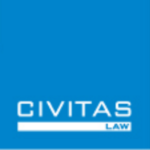This category can only be viewed by members.
Yes, but the relevance of the inquest is key, says Anthony Searle ‘Despite the difficulties that are frequently encountered by families in their search for funding, Fullick is a reminder that it is possible for the bereaved to recover inquest costs.’ Costs are a vitally important consideration at all stages of personal injury litigation, including …
Continue reading "Costs: Recovering inquest costs in successful civil claims – is it possible?"
This post is only available to members.
Matthew White looks at the risks for employers in light of the decision in Shelbourne v Cancer Research ‘For an employer to be vicariously liable for a wrong it will not suffice for a claimant merely to show some connection between the wrongdoer/wrong and work or the workplace, no matter how tenuous.’ In Shelbourne v …
Continue reading "Vicarious liability: Planning an office party? Read this first."
This post is only available to members.
Jessica Van der Meer, Isabel Barter and Luka Krsljanin provide an overview of how litigation is taking place in these unprecedented times ‘In the absence of any clear order or direction from the relevant court, you should endeavour to agree adjournments of any trials or substantial hearings which cannot be conducted remotely. ‘ All hearings …
Continue reading "COVID-19: Civil litigation in the time of Covid-19"
This post is only available to members.
Simon Hughes and Isabelle Knight examine the implications of the recent Court of Appeal decision in Cowley v LW Carlisle Ltd [2020] ‘The Court of Appeal has now confirmed that the court does have the power to strike out a claim under its general case management powers, independently of jurisdiction arguments.’ In an appeal before …
Continue reading "Procedure: Dissolved defendants"
This post is only available to members.
Stephen Innes discusses the possibility of obtaining some money in advance of final assessments ‘Thought should be given in advance of the hearing as to the amount of the payment on account of costs which will be sought if successful.’ With the upheaval and uncertainty caused by the coronavirus pandemic, it seems inevitable that there …
Continue reading "Costs: Cashflow and the importance of payments on account of costs"
This post is only available to members.
Ian Meikle considers the approach to causation in the clinical negligence case of Schembri v Marshall [2020] ‘Statistics may be the main evidential aid to what would have happened in hypothetical situations, but they are still only trends.’ The Court of Appeal addressed the appropriate approach to causation in a medical negligence case where a …
Continue reading "Causation: Statistics in medicine"
This post is only available to members.
Aidan O’Brien considers the ruling in Putta v Royal Sun Alliance [2020] ‘A judge was entitled to consider the claimant’s available funds, from a range of sources, including current accounts, savings accounts, credit cards and overdrafts.’ The long running battle between credit hire organisations and motor insurers continues to rumble on. Credit hire charges generate …
Continue reading "Credit hire: Testing the limits of impecuniosity"
This post is only available to members.
Expert witnesses; unfit to act; third party costs order ‘Thimmaya stands as a stark reminder of the court’s power to make third party costs orders. There is no reason in principle why such orders cannot be made against expert witnesses.’ As all legal practitioners know, good experts win cases. Conversely, bad experts can not only …
Continue reading "Case report: Thimmaya v Lancashire NHS Foundation Trust (2020) Manchester County Court"
This post is only available to members.
Matthew Ford and Sarah Prager talk through the latest on COVID-19, its effect on travel and when compensation may be payable ‘As time goes on and more is known about the transmission of the virus, so too the obligations on travel providers increase in line with their increasing constructive knowledge.’ COVID-19 is a new virus …
Continue reading "Travel claims: COVID-19: the facts"
This post is only available to members.
Simon Readhead QC considers the difficulties caused by historic claims ‘Although the key factual witness had some recollection of the events under scrutiny, her evidence was necessarily an exercise in reconstruction from memory, contemporaneous records and what she believed she would have done and thought.’ Issues relating to memory and witness evidence continue to trouble …
Continue reading "Witnesses: The problems of evidence many years after the event"
This post is only available to members.










